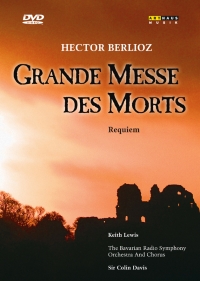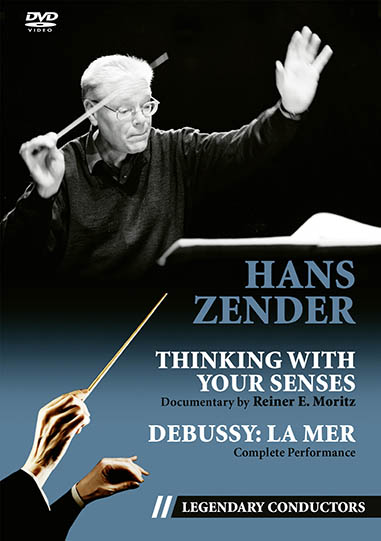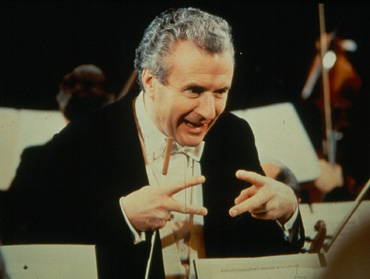
GRANDE MESSE DES MORTS
Hector Berlioz



Hector Berlioz
GRANDE MESSE DES MORTS
1990
Soloists:
Keith Lewis (tenor)
Orchestra, Chorus:
Symphonieorchester und Chor des Bayerischen Rundfunks
Conductor:
Sir Colin Davis
Director:
Klaus Lindemann
Berlioz is the greatest musical figure in the French Romantic movement. His Requiem (1837) – La Grande Messe des Morts – was written for the soldiers killed in the Algerian campaign. The Requiem was the only work Berlioz permitted to be published without any revision. His own account of the first performance was as follows: “The effect on people of contrasting sensibility and disposition was overwhelming. The priest wept for a quarter of an hour at the altar after the ceremony and embraced me in tears in the sacristy; the impact of the five orchestras and eight pairs of timpani in the 'Tuba mirum' was indescribable. A female member of the choir had a nervous breakdown. It was a truly awesome experience.” The magnificent cathedral of Regensburg is a perfect setting for this recording of Colin Davis conducting the Bayerischer Rundfunk Symphony Chorus and Orchestra in a splendid, moving performance of Berlioz’s monumental work, with tenor Keith Lewis as soloist. The performance is completed by the pealing of the cathedral bells.
Label:
Arthaus Musik
Genre:
Konzert
Running Time:
102
Picture Format:
4:3
Sound Format:
PCM Stereo
Number of Discs:
1
Region:
0
Languages:
LA
EAN:
0807280202793
UPC:
807280202793

Johann Sebastian Bach
The Goldberg Variations, BWV 988, are a set of 30 variations for harpsichord by Johann Sebastian Bach. First published in 1741 as the fourth in a series Bach called Clavier-Übung, (''keyboard practice''), the work is considered to be one of the most important examples of variation form. It is named after Johann(...)

“Hans Zender belongs to the last of that generation of composers who drove the establishment of a new music after WWII. Modernity and tradition were the two strands of his artistic career, music, making, composition and reflexion on music were the leading subjects of his untiring mental activity.” (Max Nyffeler, music(...)











 PDF Download (5,5 MB)
PDF Download (5,5 MB) PDF Download (6,7 MB)
PDF Download (6,7 MB)